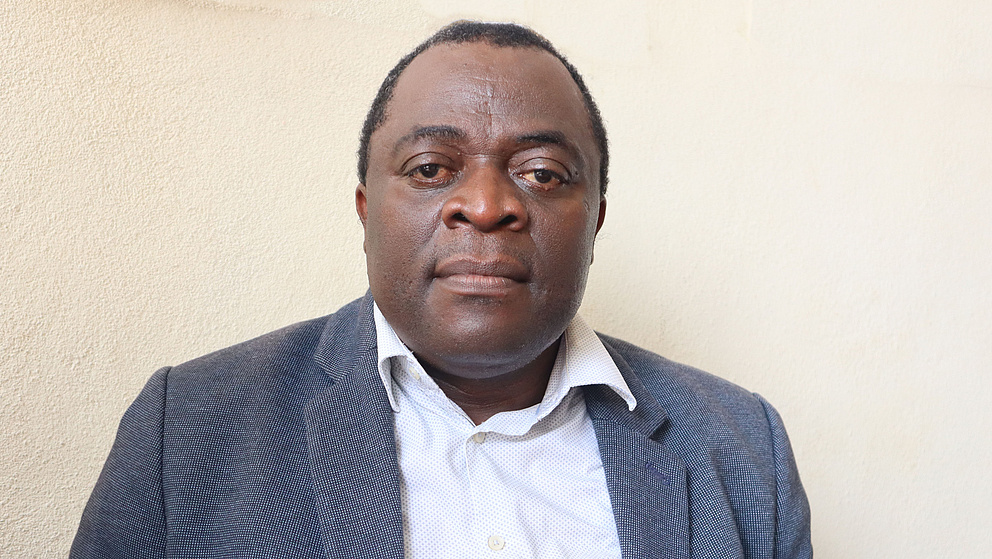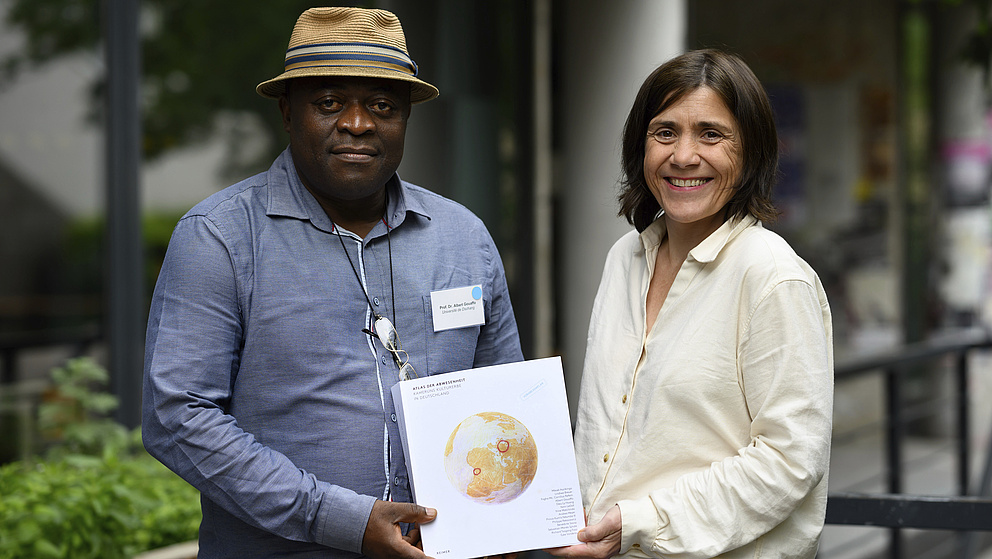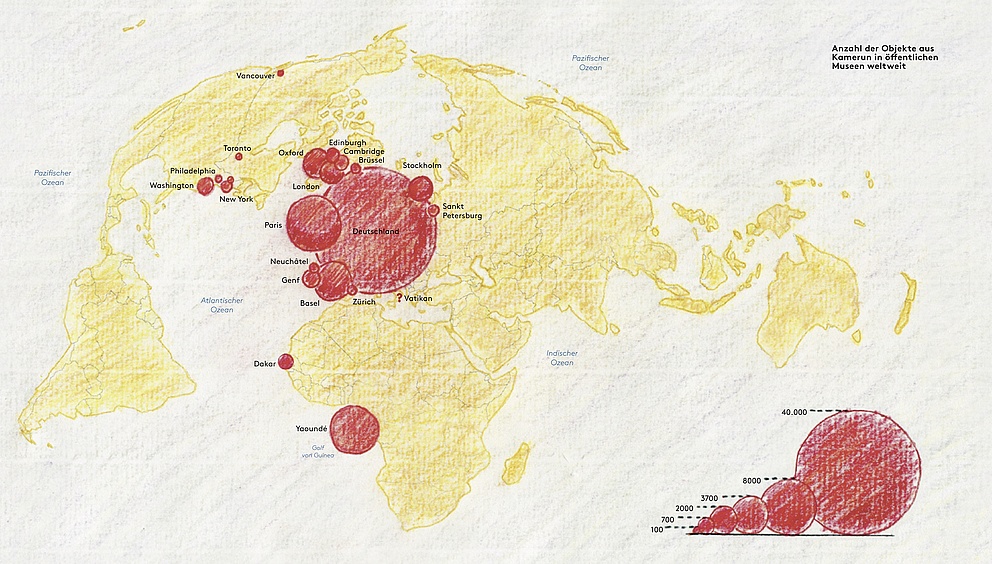Since 1953, the Humboldt Foundation has been bringing the best researchers to Germany from all over the world. The Foundation is thus a catalyst for progress and understanding. Our sponsorship recipients tackle the global challenges – they follow their ideas and generate valuable knowledge. More than 30,000 researchers in the Humboldt Network build bridges, do pioneering work, shape the world of tomorrow. Here you can get to know some of them. People who make a difference. We are grateful for the trust placed in us by our supporters, who share our vision of a safe, fair and sustainable common future!
A strong voice against colonial amnesia: Albert Gouaffo
The Cameroonian cultural history scholar Albert Gouaffo is fighting for the acknowledgement of colonial violence and for a history-sensitive approach to cultural assets. His research on forgotten colonial inventories in the depots of German museums is casting light on a dark chapter of German history.

Contact
Press, Communications and Marketing
Tel.: +49 228 833-144
Fax: +49 228 833-441
presse[at]avh.de

Today, more than 40,000 objects from Cameroon are stored in public museums in the Federal Republic of Germany – the largest inventory in the world. By comparison, Cameroon’s state-owned collection encompasses only about 6,000 artefacts. This disparity quantifies the history of colonial expropriation from 1884 to 1916 and the subsequent loss of identity and knowledge. From the Linden Museum in Stuttgart all the way to the Ethnological Museum in Berlin, German museums are storing cultural assets which have been forgotten for a long time and with them the scope of the cultural theft perpetrated in Cameroon during the German colonial era. Until now. With the “Atlas of Absence”, a 500-page study with maps, photos and biographies of the artefacts, the Humboldtian Albert Gouaffo, professor of German literature and culture at the University of Dschang in West Region, Cameroon, and the art historian Bénédicte Savoy from the Technische Universität Berlin have reconstructed the invisible presence of the African country in German museums.

Albert Gouaffo
is a professor of German literature and culture studies, and intercultural communication. Since 2015, he has been head of the Department for Applied Foreign Languages at the University of Dschang in Cameroon. He studied German language and literature as well as Francophone African literature at the universities of Yaoundé (Cameroon), Hannover and Saarbrücken (Germany). In 1997, he gained his doctorate in Francophone African literature in the German language and cultural area at the Saarland University where he also conducted research as a Georg Forster Fellow from 2004 to 2006. He obtained his postdoctoral qualification (habilitation) at Saarland University on the subject “Transfer of knowledge and culture in the colonial context” in 2006. Albert Gouaffo’s contributions to the “Atlas of Absence” (2023) were made possible not least thanks to funding from the Alexander von Humboldt Foundation.

The publication is based on the project “Reverse Collection History” and is the result of a two-year collaboration between researchers from Cameroon and Germany and curators from 45 German museums. Co-initiated by Gouaffo, the study strives to convey the history of the expropriation and give voice to the dispossessed while also seeking to re-connect the country with its own cultural heritage. Gouaffo’s research consequently speaks to the heart of the current debates on the handling of colonial artefacts. In recent years, German provenance research has received important impetus, not least through the demands made by civil society initiatives in the former colonies. Negotiations on the restitution of the Benin bronzes, and their subsequent return to Nigeria in 2022, eventually triggered a far-reaching process of institutional reflection and close examination of the colonial possessions in German museums.
“Young Germans have access and learn from the cultural property of their own forefathers. By the same token, this privilege cannot be withheld from the young people of Africa.”
Gouaffo and Savoy’s research project is a further important step in the decolonialisation of German museums. For Gouaffo, critical awareness begins with the presentation of artefacts and their naming. Even the verb “to collect” is a euphemistic term for the violent appropriation within the colonial context. “The term suggests that the objects were freely available and you only had to take them”, stressed Gouaffo. The word “objects” is also inadequate, he noted. The cultural assets that are stored in German museums – ranging from textiles to ritual masks all the way to manuscripts and tools – are not passive artefacts, but rather expressions of social interaction or even constitute the heart of communal life. They have a presence, an “agency”, in Cameroonian culture and as such must be embedded in social contexts.

Gouaffo’s research has also influenced the politics of memory and the process of coming to terms with the past in Cameroon. For example, an inter-ministerial committee on the repatriation of Cameroonian cultural assets that were illegally taken abroad was established on 25 January 2023. Again, the “Atlas of Absence” comes at just the right time. It provides an important basis for clarifying ownership. But above all, Gouaffo wants to jump-start a dialogue about new opportunities for cooperation: “In the case of Cameroon and Germany, we should collaboratively negotiate the conditions for the repatriation of some of these cultural assets. This would also offer an opportunity to re-imagine our bilateral relations.”
